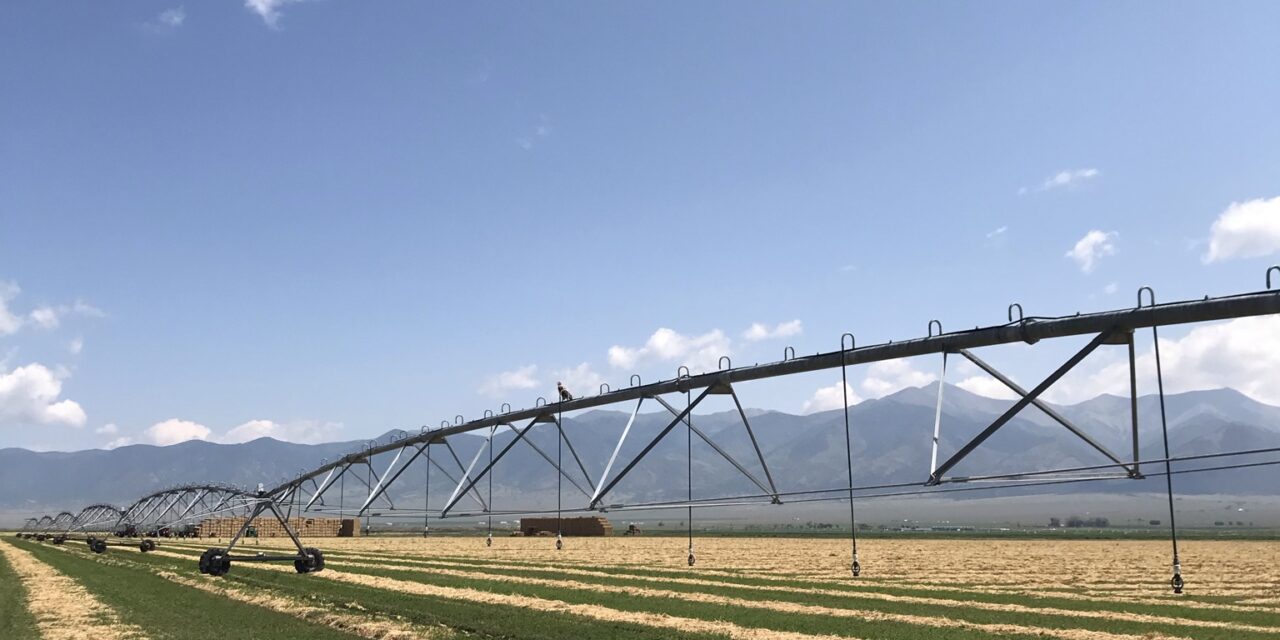SOIL Act Might Limit Foreign Ownership of U.S. Agricultural Land
There is a growing and bipartisan school of thought that the land of a country, if not its agricultural production processes should remain in the hands of the citizens of that country. Yes, in America our agribusinesses sell grain to China, and cattle to Brazil; soybeans to Japan, and wheat and cheese to Canada (our largest trading partner).
But when it comes to the ownership of that land staying in American hands — or for that matter, the water rights attached to that land — at least some legislators are taking notice of a concerning trend that may threaten our national security.
According to USDA data, foreign investors owned at least 35.2 million acres of U.S. agricultural land in 2019, representing 2.7 percent of U.S. farmland. This is about the size of Iowa.
This week, Colorado U.S. Senator Michael Bennet joined U.S. Senators James Lankford (R-Okla.), Jim Risch (R-Idaho), and Thom Tillis (R-N.C.) introducing a bipartisan bill, called the Security and Oversight of International Landholdings (SOIL) Act. Its goal is to provide oversight and transparency over purchases of American agricultural land, based on the premise that the ability of a country to produce what it needs to feed its own citizens, is directly related to our national security.
“For too long, Washington has allowed foreign adversaries like China and Russia to buy up American farmland and its precious water resources while our family farmers and our economies became collateral damage,” said Bennet. “For the sake of American growers, farmers, and ranchers, we need to modernize and strengthen our tools to evaluate the risk of these foreign purchases on our supply chains and our national security.”
As of 2021, according to the U.S. Department of Agriculture (USDA), Colorado ranks third in the country with the most foreign-owned agricultural acreage, behind only Texas and Maine. There are 1.9 million acres of foreign-owned agricultural land in Colorado.
The sage advice of the American humorist Will Rogers and novelist Mark Twain comes to mind when in their ‘aw shucks’ way both commented, “Buy land. They ain’t makin’ any more of it.”
Foreign corporations have listened. While foreign land ownership has been reported in all 50 states and Puerto Rico, there are concentrations in a few states. The greatest share is in Texas, with more than 4.4 million foreign-owned acres, this is followed by Maine (3.3 million acres) and Alabama (1.8 million acres). In 2019, more than 40 percent of the additional 3.4 million acres acquired by foreign investors that year was in Texas, Oklahoma, and Colorado.
In Arizona, the spectacle of Mideast-owned land being irrigated with precious water in a drought-stricken west, to raise grass on which cattle graze, to produce beef for Mideast consumption seems beyond imagining. But it is happening and all they have to do is register.
The current laws Arizona Constitution (Art. 10, § 11; Ariz. Rev. Stat. Ann. § 37-240) says that no more than 160 acres of public agricultural land or 640 acres of state grazing land can be purchased by an individual, corporation, or association. Corporations that aren’t registered to conduct business in the state also can’t purchase state land.
Here in Colorado, the law reads: “Any foreign party (person, foreign-owned business, foreign agent/fiduciary/trustee) that acquires interest in agricultural land must register with the county clerk in the county where the land is within 60 days. Acquiring land in repayment of a debt/mortgage is permitted for foreign entities.”
As reported by the Center for Strategic and International Studies, foreign ownership of U.S. agricultural land doubled from 2009 to 2019, according to U.S. Department of Agriculture (USDA) records. As the proposed legislation demonstrates, policymakers have become increasingly concerned about foreign control of the U.S. food supply.
Also known by the term “land-grabbing,” the term refers to when a government, company, or other entity purchases large swaths of land in another country. Not only can this affect local land rights and agricultural production, but it can sometimes put local food security at risk. It is for this reason that European countries such as France, the Netherlands, and Italy vigorously protect their agricultural production.
The proposed “SOIL” bill requires the Committee on Foreign Investment in the United States (CFIUS) to review agricultural land acquisition deals from non-market economies and countries that pose a national security risk to the United States. It would also require a consultation with the Secretary of Agriculture on such deals.
In a Feb. 28 Senate committee hearing, Democratic Sen. Jon Tester of Montana who is a farmer, let his thinking on the situation be known saying, “I don’t think we should be allowing countries who don’t give a damn whether we exist or not to own land, whether it’s farmland or agribusiness, in this country.”
The legislation would also prohibit federal assistance for certain foreign-held real estate holdings, broadens disclosure requirements for land purchases made by foreign entities and their intended uses, and increases USDA reporting on land acquisitions by China and Russia.
According to a recent article in the Colorado Newsline, there is growing momentum for such legislation. They quote Agriculture Secretary Tom Vilsack as saying “Foreign ownership of agricultural land threatens small family farms and the overall health of the agricultural supply chain.”
He included that comment in a message to a bipartisan group of House lawmakers in a Feb. 27 letter. Vilsack went on to condemn the department’s insufficient foreign transaction reporting from 2015 to 2018, during which time significant foreign purchases of U.S. farmland by foreign entities were made.
The text of the bill is available HERE. A summary is available HERE.
Featured image: Ron Bowman’s alfalfa field on his San Luis Valley Farm. Photos courtesy of Colorado Open Lands.







Recent Comments